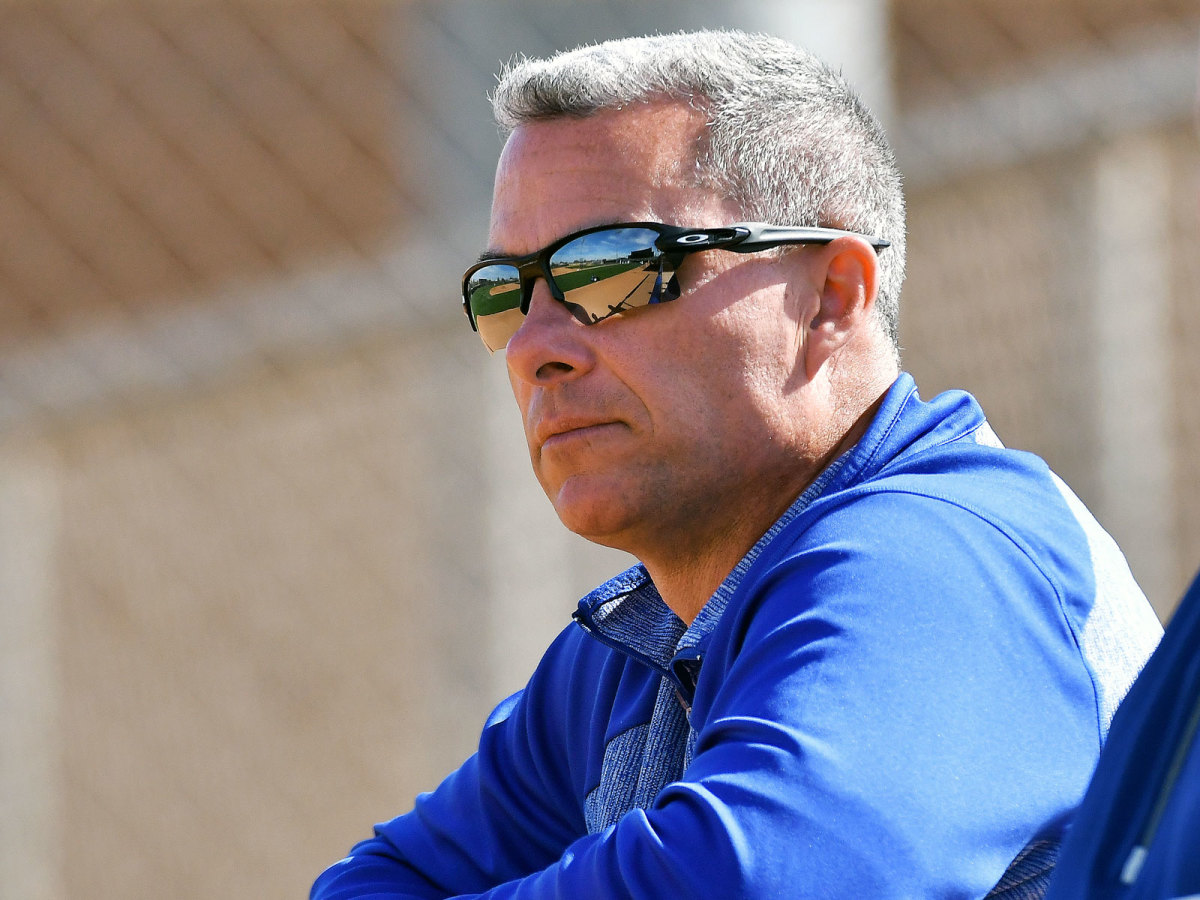There Is No Moral Justification for the Royals or Any Team to Sign Luke Heimlich

Across the 40 rounds of the 2018 MLB draft, stretching from the night of June 4 through the afternoon of June 6, 1,214 players were selected, from high school teenagers to college seniors—from the best amateur players in the country to guys who will be lucky to log even one major league inning. Not included among those thousand-odd names called was Luke Heimlich’s. The lefthander out of Oregon State has been one of college baseball’s best pitchers over the last two years of his career. He’s also a convicted child molester.
Where you fall on Heimlich’s future in baseball depends on which of those you give more weight to: his talent or his crime. Severely complicating that matter is Heimlich’s own repeated and public insistence that he is innocent despite having pled guilty to the crime, which he committed at 15, of molesting his then-six-year-old niece. That plea was something he did, he maintains, to avoid the pain and suffering of a court trial and having to put his family on the stand, not because he actually did anything wrong.
It’s easy to see why no major league team wants to be involved with Heimlich and the ugly particulars of his conviction and case. Teams may also prefer to avoid a person who denies a heinous action and, by extension, implies that his victim—a six-year-old child at the time she was molested—is lying.
But the Kansas City Royals have come out as one of Heimlich’s lone supporters—in particular, general manager Dayton Moore. Last week, in a televised interview with Fox Sports Kansas City (which was surfaced and partially transcribed on Tuesday by The Athletic’s Rustin Dodd), Moore told broadcaster Ryan Lefebvre, “We do believe in the player and the person, Luke Heimlich,” and that Heimlich “has earned an opportunity to play professional baseball.” A recent Kansas City Star column by Vahe Gregorian, meanwhile, has Moore quoted as saying, “We continue to seek information that allows us to be comfortable in pursuing Luke.” When contacted by SI.com, the Royals said Moore wouldn't comment any further on Heimlich.
Moore’s language is telling. The information already out there paints a simple picture: Heimlich is guilty of molesting his niece and admitted as such in a court of law. Barring a sudden statement otherwise from the victim or her family, those are the facts on record.
What Moore wants instead is something that can help him sell this in a different way. He wants “information” that will show Heimlich not as a convicted and unrepentant felon, but as a young man who made a mistake and served his punishment and is a better person than what’s been portrayed. “Not only did he achieve athletic excellence, he achieved academic excellence along the way,” Moore told Fox Sports Kansas City of Heimlich’s time at Oregon State, adding later, “Do I believe that he has earned an opportunity to play professional baseball? I do, because of his character over the last four or five years.”
The takeaway from Moore’s comments is obvious: He’s laying the groundwork for a potential signing. If he and the Royals can successfully minimize his actions and flip the public sentiment on Heimlich, then they can land themselves a top-flight talent on the cheap. (Had he been a first-round pick, Heimlich would’ve signed for anywhere from $2.3 million to nearly $8 million; as an undrafted free agent, he’ll get a few thousand dollars.) But to do that, fans and media have to be convinced that Heimlich isn’t a bad person, and that he’s grown or matured or reformed. So here’s Moore, publicly talking up Heimlich’s accomplishments and character and how his team believes “in giving players second chances.”

It’s a strategy as transparent as it is offensive. The question of how one earns redemption and who deserves it is fraught and difficult to answer, but at a minimum, it should include some form of penance or contrition or remorse. Nothing that Heimlich has publicly said or done aligns with what Moore has said of a player who is of high character or deserves any kind of MLB opportunity. He has repeatedly denied his crime to anyone who will listen. When Sports Illustrated’s S.L. Price asked Heimlich if his assertion of innocence meant that his victim was telling a false story, he replied, “Yes.” Moore wants us to believe Heimlich has taken responsibility for what he did, but Heimlich refuses to do so publicly. So why should he be afforded redemption?
For a team to sign Heimlich is to wade into a whole mess of issues: questions of restorative versus retributive justice, of the normalization of what he did, of the damage he inflicted upon his victim and the pain she will have to live with. Heimlich’s supporters, Moore apparently included, will say that he did everything required of him post-conviction, and that no one should be judged forever. “I’ve made a lot of mistakes in my life, mistakes that could have disrupted my career path and put me in a whole different area,” Moore told Fox Sports Kansas City. The comparison is clear: We are not the worst decisions of our lives, and they shouldn’t shape their entire course.
But why does Heimlich deserve the opportunity to move on if he won’t accept what he did wrong? And even if he did own up to it, why does that entitle him to a baseball career? Being a professional athlete is a privilege, not a right, and one that talent alone doesn’t and shouldn’t confer. The concept of sports leagues as punitive and restorative bodies is complicated, but this is straightforward: If you plead guilty to child molestation, why should you be afforded a career and the reward that comes with it?
For Moore and the Royals to defend Heimlich or attempt to clean up his image is to become complicit in his crime. To ask the public to see him as a man who deserves another chance is to ignore that he never atoned for his actions, and to whitewash what he did. That this is coming from a man in Moore who is strongly and obsessively opposed to pornography on moral grounds makes his support of a convicted child molester all the more galling and hypocritical. There is not and should not be room in the major leagues for men like Heimlich, and it should be completely unacceptable for the Royals to sign him.
There is no debate on this matter, no gray areas or ethical soft spots or moral compromises. Luke Heimlich isn’t owed a career with its attendant spotlight or platform, nor a second chance and the promise of unearned redemption. Unlike the 1,214 men who were selected in the draft and the countless more who signed after it, Heimlich’s story doesn’t deserve a new chapter as a big leaguer.
